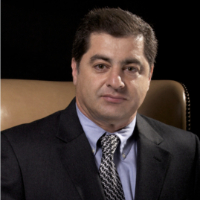Marbury Felony Lawyer, Maryland
Sponsored Law Firm
-
 x
x

Click For More Info:
-
Price Benowitz LLP
409 7Th St Nw Suite 200 Washington, DC 20004» view mapCriminal Law Working Relentlessly For You
Our firm was built on the understanding that comprehensive representation does not begin and end in the courtroom.
202-600-9400
Morgan E. Leigh
✓ VERIFIEDPrior to joining Scrofano Law PC, Ms. Leigh was a solo practitioner who specialized in criminal and DUI defense. During her time as a solo practitione... (more)
Wendy A. Cartwright
✓ VERIFIEDI have had the privilege of being in private law practice in Maryland for the last 19 years. I was a judicial law clerk for the Honorable Howard S. Ch... (more)
Cameron Niakan
✓ VERIFIEDCameron Niakan is a practicing lawyer in the state of Maryland handling bankruptcy matters.
Kush Arora
Kush Arora is a lawyer in the state of Maryland who focuses on Criminal cases. He has tried cases in the areas of assault, DUI, drug charges, bur... (more)
Charles Waechter
✓ VERIFIEDAnnapolis Criminal Defense Law Firm If you face criminal charges, an experienced and respected defense lawyer can help protect your rights, evaluat... (more)
Timothy Joseph Sullivan
FREE CONSULTATION
CONTACT Seth Price Washington, DC
Seth Price Washington, DC AboutPrice Benowitz LLP
AboutPrice Benowitz LLP Practice AreasExpertise
Practice AreasExpertise





